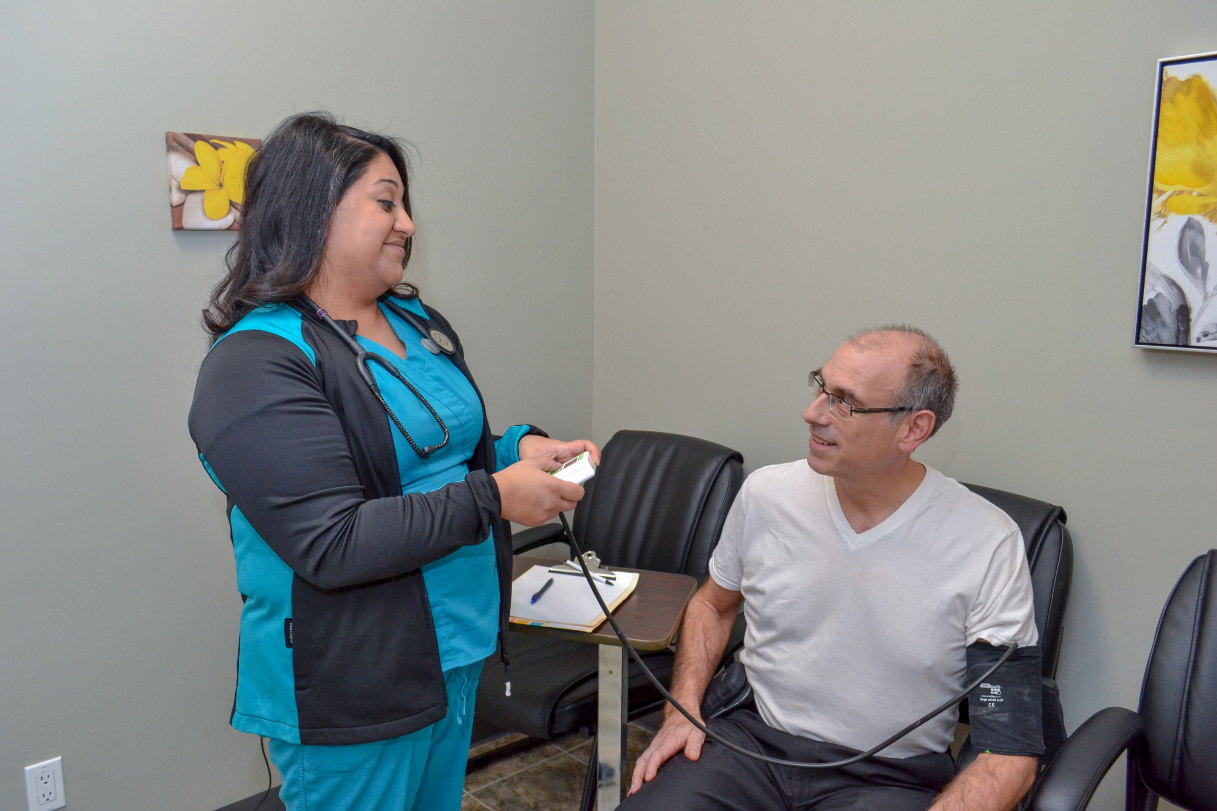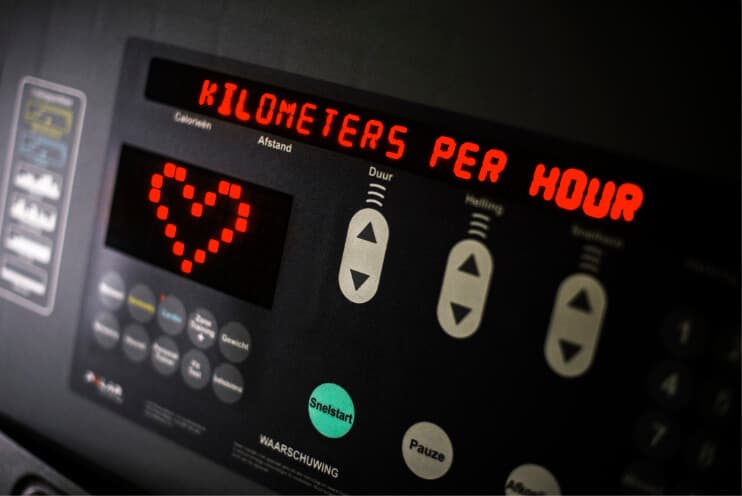Regular Exercise Stress Test
An exercise stress test helps your doctor and cardiologist determine how your heart performs under an increased workload. To increase the workload on your heart, we will ask you to exercise on a treadmill. The test begins at a walking pace and slowly increases in speed and incline until a desired heart rate is reached. For some this is a fast walk, while for others it might be a slow jog. A technologist will monitor your heart rate and blood pressure by attaching ECG leads to your body and a blood pressure cuff to your arm.
This cardiac stress test reveals how hard your heart must work to provide oxygen to other muscles and how additional stress impacts blood supply to the heart.
Your doctor may refer you for a stress test to evaluate your coronary arteries or cardiac symptoms such as chest pain, shortness of breath, dizziness, or light headedness, and to predict the likelihood of any major heart-related conditions such as a heart attack or stroke.
At the time of booking, you will receive specific preparation instructions. Please note that these instructions are slightly different if you are diabetic to accommodate insulin and blood sugar fluctuations. It is extremely important that you follow these instructions carefully and eat a small snack before you begin fasting for your exam.
Our team is happy to answer any questions you have to ensure you are properly prepared for your exam. Insight Medical Imaging provides exercise stress tests at our Meadowlark and Millwoods cardiac labs in Edmonton.
What Happens During my Exercise Stress Test?
- You will be hooked up to a 12-lead ECG machine and a blood pressure monitor.
- Your stress test involves increasing the workload on your heart while on a treadmill until a target heart rate is reached (a walking pace for some or a jog for others).
- Please inform your technologist if you feel dizzy, sick, lightheaded, or unusual during your exam.
- Once the target heart rate is reached, you will be allowed to rest for five minutes. We will continue monitoring how your body reacts to the elevated heart rate and blood pressure.
- After the technologist has enough information, you will be free to leave.
- The information will be reviewed by our on-site cardiologist and the results sent to your doctor as soon as possible.
Cost
If you have an Alberta Health Care card or valid healthcare card from out of province, there is no cost for a exercise stress test (except Quebec).
Duration
The exercise heart stress test typically lasts 30 to 45 minutes, depending on how long it takes you to reach your target heart rate.
Exam Preparation
Being prepared for your Exercise Stress Test helps us take the best possible diagnosis. Please visit our exam prep page for more instructions specific to Regular Exercise Stress Test preparation.



